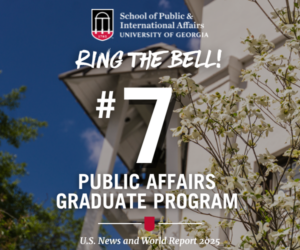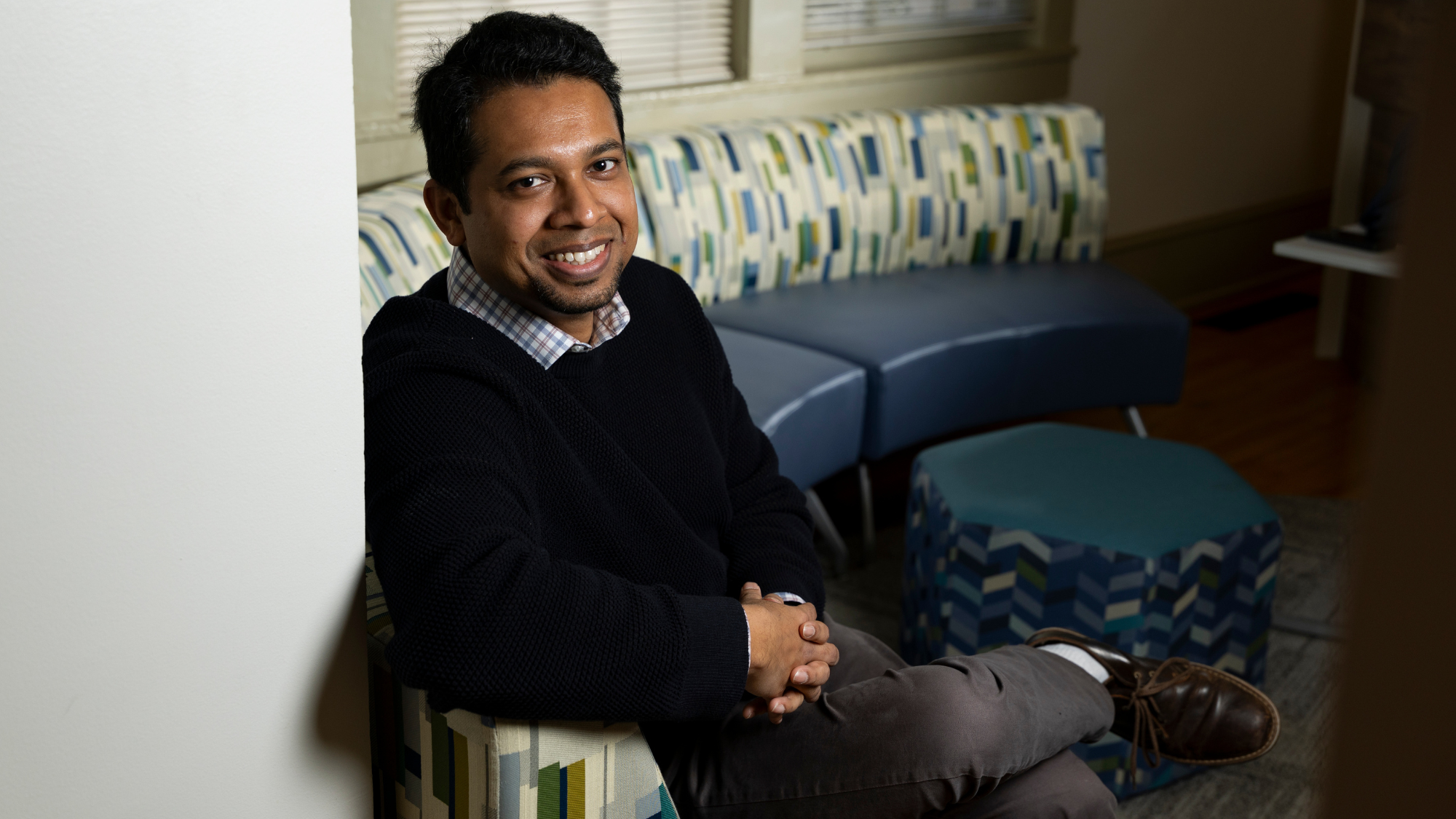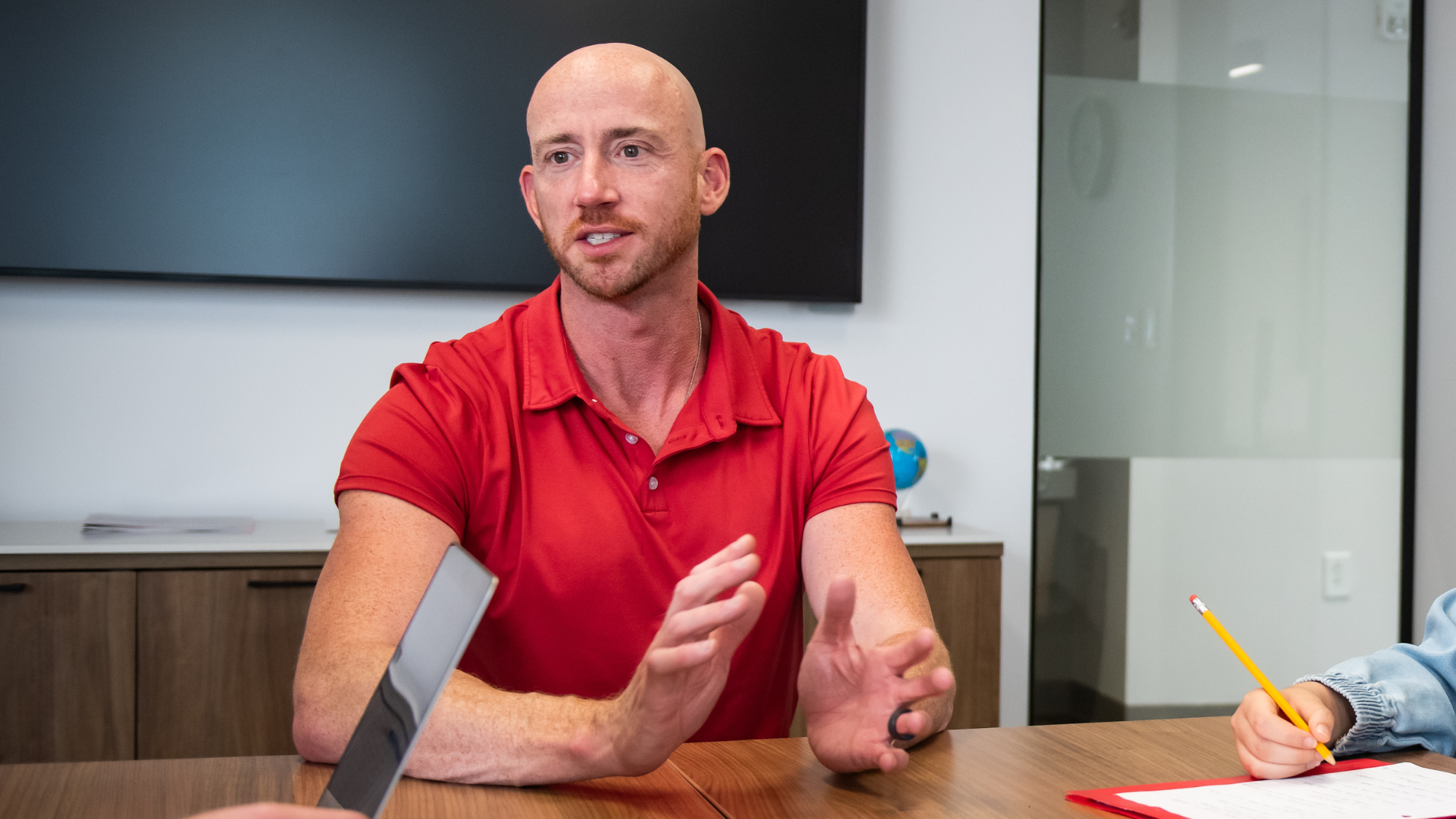
The University of Georgia’s School of Public and International Affairs (SPIA) has once again earned recognition among the nation’s best, tying for seventh in the 2025 U.S. News & World Report rankings for public affairs graduate programs. This accolade reinforces SPIA’s status as a leader in the field, a position it has held for over two decades.
Among specialty rankings, SPIA is second in Public Management and Leadership, third in Public Finance and Budgeting, and fifth in Local Government Management, according to the 2023-2024 USNWR rankings.
“The rankings continue to affirm the quality of our programs and the people who make those programs strong: our outstanding faculty, professional staff, and students,” states Matthew Auer, Dean and Arch Professor of Public and International Affairs.
Innovative Research: Leading the Charge in Public Service
At the heart of SPIA’s success are the faculty members who focus on topics that at once are timely and important.
Professors like Katherine Willoughby and Heewon Lee are researching policy that has direct implications for both state and local governments. Dr. Willoughby’s recent study explores how financial transparency in the public sector enhances governance and accountability, providing essential insights for improving government fiscal management. Dr. Lee’s study examines the effectiveness of collaborative platforms, finding that collaborations led by nonprofits and regional government councils significantly improve air quality.
Matthew Auer’s work on wildfire risks and Emily Lawler’s studies on vaccine policies are prime examples of how SPIA’s faculty are leading national conversations on current events, offering research results that inform policy debates and decisions.
David Bradford and Felipe Lozano-Rojas’s research into opioid addiction and homelessness is reshaping how we understand the intersection of social issues and public health. Additionally, Ishtiaque Fazlul and colleagues’ research on the economic impact of long COVID reveals the significant financial costs associated with the condition – highlighting the long-term implications for healthcare systems and the workforce.
Amanda J. Abraham and Andrew Whitford have made significant contributions to policy research, with Whitford examining the uneven deployment of algorithms as tools in government, and Abraham analyzing Medicaid managed care plans and their discretion to restrict substance use disorder treatment.
Rebecca Nesbit and her team have conducted groundbreaking research on the impact of economic inequality on volunteering, revealing how disadvantaged communities are less likely to volunteer and providing crucial insights into the role of social networks in civic engagement.
SPIA faculty’s research contributes to broader discussions on issues such as public health, environmental sustainability, and social equity. Their work provides valuable insights into societal challenges and community well-being.
A Commitment to Public Service and Impact
At SPIA, learning often involves community collaboration. Dr. Eric Zeemering, a recognized expert in local government administration and director of the MPA program, has recently been honored with a Service Learning Award for his Local Government Practicum course. This maymester class connects students with real-world local government projects. In recent years, students in the practicum have undertaken housing assessment surveys that aid towns in Georgia with community development.
Dr. Michelle Lofton’s work in active learning emphasizes the importance of student-centered teaching, where learners are encouraged to participate in problem-solving, collaborative projects, and real-world case studies that mirror the challenges they’ll face in their careers. This approach allows students to develop critical thinking skills and prepare for leadership roles with confidence.
For Joseph Morris, an MPA student, his internship with the Stephens County government, in rural Georgia, was transformative. He worked on crafting and executing a much-needed salary survey for current and future employees in local government. The experience gave him deeper insights on the inner workings of public agencies at the local level. Joseph took full ownership of a project that had an immediate impact.
“Stephens County shaped my future career aspirations. Initially, I intended to follow the MPA program with law school, but through this internship, I gained valuable insight into the direct impact local government has,” Joseph reflects. “I was fortunate enough to connect with experienced professionals who I now consider mentors.”
Following his internship, Joseph was employed by Stephens County in the Elections Department, and this led to a new opportunity to become the first City Administrator in a growing community in the Athens Metropolitan Area. “Without this internship experience, my career path and aspirations would not have been fully developed as they are now,” he says. “I’m incredibly grateful for the opportunity that SPIA and Stephens County gave me.”
Celebrating Our Achievements, Looking Ahead
As SPIA continues to maintain its top-tier rankings, it also approaches a significant milestone: the 25th anniversary of the school and the 60th anniversary of the creation of the MPA program. These are occasions to reflect on how far SPIA has come in shaping public service education. SPIA looks forward to marking these important milestones and to preparing students for the next many decades of public sector leadership.







